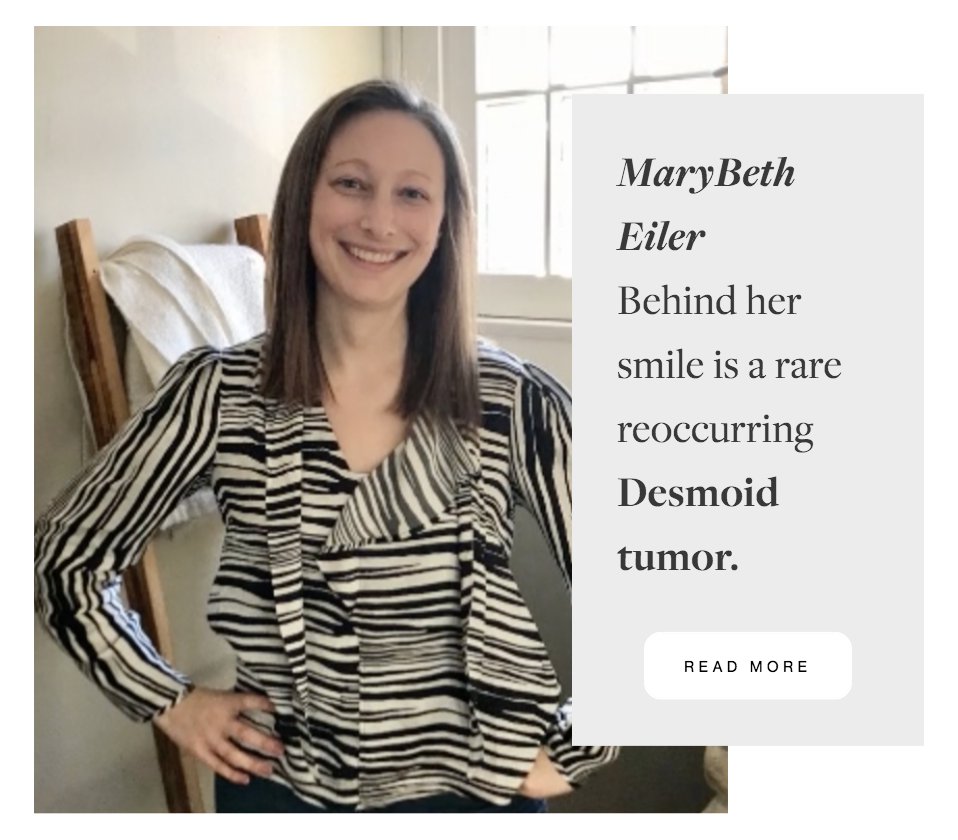Invisible Disease & Disabilities: How to Discover Blessings, Joy, and Smile Again
Our dreams of the future often share storybook threads that include marriage, family, a career, and living happily ever after. Some people even dream of heading to space, winning Olympic medals, governing countries, or making the world better. However, sometimes our reality doesn’t mirror storybook arcs.
Invisible pain and disability are a part of my story. Maybe invisible pain is not your story, but it’s likely the story of someone in your life - a friend, a family member, someone in your neighborhood, or Bible study.
I’ve teamed up with Erica Baldwin and MaryBeth Eiler to share our experiences with invisible diseases and disabilities.
At first glance, you may not realize a battle exists underneath our smiles. We reach deep past pain and broken dreams to share the gifts and wisdom gathered along the rough road of living with an invisible disease or disability. Despite circumstances, we continue smiling and shining the love of Jesus to the world.
In this collaboration, we hope to share practical ways to help the invisible become visible in your heart. Also, don't miss our special free gift for you at the end.
The Invisible Behind Our Smiles
For Friends & Family of Someone With an Invisible Disease or Disability
Our collective thoughts on what we wished everyone understood, but we struggle to share with you:
Growing In Grace & Understanding
Faking Well: Have you ever faked being sick from work or school? People with invisible diseases and disabilities don't fake sickness. Rather, those suffering from chronic pain are more apt to fake being well, so you don't worry about them. We do this because we know that every relationship in our lives is affected. We are acutely aware that our disabilities impact those around us, and we often work really hard to minimize the impact.
Looks Can Be Deceiving:
Invisible means you can't see the nonstop war raging inside our bodies
How we look doesn't always reflect how we feel
Pain is constant, even when we smile
A Different Dictionary: A new way of living requires a new vocabulary and understanding.
When we say we’re fine, we have a different definition of “fine” than most. Saying “I’m fine’’ is easier than repeating the unrelenting story of pain.
When we use the word “normal” please understand whether referring to pain or our lives now, it is a “new normal” and likely not very normal at all.
Disability doesn’t have to be a bad word or life.
Use Pencil: Physical and emotional pain are constant companions and can be difficult to schedule around. Chronic pain levels are unpredictable, varying even hour-to-hour. A late morning to midday visit is often better, as pain builds throughout the day. If we need to reschedule, please understand it’s not personal. Your flexibility with keeping calendar dates in pencil is a gift of grace to us.
When You Don't Know What To Say Or Do
Keep Showing Up: Continue being a friend. It sounds so simple, but statistically, people with diseases and disabilities lose most of their friendships. Friends fade away when we can’t meet traditional friendship expectations. We would love to show up in your life but often are unable. Even if the chronic illness has changed some of our abilities, it hasn’t stolen our desire for joy and connection.
Pray with us and for us
Send a text with days/times you can stop by for a visit
Introduce us to new and interesting people
Take us to church or join us for church online
Send encouraging cards, letters, or texts
Come over for a visit or movie
Drop off a meal or surprise treat
Notice & Just Do It: The ability to lift, reach, and bend down can be challenging for people in chronic pain. We struggle to ask for more than we already do. Be an attentive observer and pitch in where you can. A monumental task to someone in pain may take you only a few moments.
Laundry: Transfer clothes from the washer to the dryer
Dishes: Fill or empty the dishwasher
Cleaning: Give the kitchen or bathroom a quick refresh
Take the recycling & trash out or bring the bins in
Yard/Garden: Pull a few weeds or water if needed
Groceries: Shop and help put the groceries away
For People Living With An Invisible
Disease or Disability
Root Your Faith: Invite God to find you in the dark. Believe that He WILL find you. You are God's Beloved and he will NEVER leave you or forsake you. God knows exactly what support you need to flourish. Maybe He meets you through prayer, reading, or listening to the Bible and worship. Maybe you quiet your soul as He meets you through a beautiful sunrise or the grandeur of a mountain. Philippians 4:8 reminds us to meditate on whatever is true, noble, right, pure, admirable, and praiseworthy. Set a goal for people to know the whole you - both your faith and your disability.
Create a Treasure Map: Be a curious explorer on a quest to discover treasures that remain. Lean toward gratitude, recording God’s faithfulness with words, pictures, or art. Expressing gratitude is the first stepping stone to joy. As you practice the art of discovering, recording, and sharing, you’ll create a treasure map to Jesus - the anchor point of joy.
Reach Out Sooner: Pursue community, don’t wait for people to come to you. Suffering alone compounds pain and grief. Invite friends over to talk, share a Bible study, or enjoy a movie together.
Live Generously: Gratitude and generosity shift our eyes from losses to blessings. Disease and disability can be financially draining, but it doesn’t cost money to be generous with your smile, time, words, encouragement, hugs, or art. Your generosity can be life-changing and life-giving.
Respect Your Speed Limit: Speed limits can vary depending on the type of car and the location. The same is true for battered bodies. Go at your own pace. If you don’t move like a Lamborghini anymore, remember, your direction is more important than your speed.
Recognize your boundaries with time and energy and communicate those honestly
Rest when you need to
Remember, the turtle won the race
Keep Laughter & Celebrations Near: Laughter and celebrations are God’s idea. Laughter has healing power and value. Research suggests laughter can relax the body, boost the immune system, trigger the release of endorphins, protect the heart, and lower the perception of pain. Allow the Spirit of God to bring joy back to your life. There is wisdom in the proverb, “A cheerful heart is good medicine, but a broken spirit saps a person’s strength.”
Make Purposeful Distraction Your Friend: When pain is bullying for control, intentionally shifting your focus can be helpful in elbowing pain back down.
Pray
Listen to worship music
Page back through journals aka “Blessing Books” to be reminded of the Lord’s love and faithfulness
Rise by reaching out to encourage and lift others
Reading or listening to inspirational stories of others who fight hard to overcome significant challenges
Move your body when possible
Don't wait - call a friend, or send a text
Try something new: art, writing, a hobby or craft
Remember Your Calling: Although your life has changed in ways you never imagined, God still has a purpose for your life. Throughout the Bible, God calls us to faith with action. Love God and love others. Nowhere are the disabled excluded or exempt. Bed-bound? Make your bed a headquarters for prayer. Homebound? Your house can be a launching pad of encouragement. Wheelchair? Leave a trail of hope everywhere you roll. Disability is not inability.
Will you tell the story of God to the world? Will you be a vessel of hope and a light in the darkness? Limitations from disease and disability require a little more creativity but never forget your calling. Go Light Your World however you can and be a reason somebody smiles today.
Your Next Steps In Learning More About Invisible Diseases And Disabilities
This is a three-part collaboration, with three different settings. If you’re here, you’ve read one portion of the story. Click on the authors’ names below to read the next part of our collaboration. Please don’t miss the treasures offered at each site.
Erica Baldwin offers insights into the gifts we have found on our journeys.
MaryBeth Eiler shares reflections on words that help, hurt and inspire us.
Our Special Free Gift for You
We have compiled our most loved and sustaining Scriptures, books, podcasts, quotes, playlist, and more into a free Inspirational Bundle. You don't have to be disabled to be blessed by this collection of encouragement and hope.
Hidden Disability Sunflower
The Sunflower is the international symbol for Hidden Disabilities. The Hidden Disabilities Sunflower Program is making the invisible, visible, in 18 countries and over 100 airports worldwide! It is recognized in airports, businesses, and other locations around the world from Portland, Oregon (PDX), to Keflavik, Iceland (KEF).
Wearing the Hidden Disabilities Sunflower discreetly indicates to airport staff and other people you have a hidden disability and you may need additional support, help, or more time.









